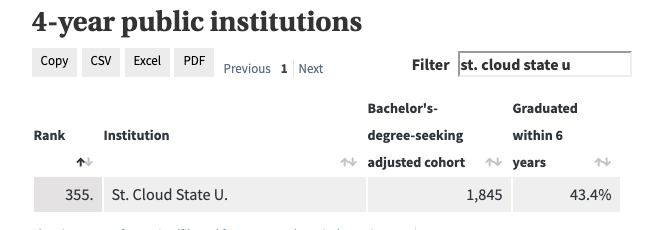Educators Are More Stressed at Work Than Average People, Survey Finds
By Madeline Will on October 30, 2017 3:25 PM
http://blogs.edweek.org/teachers/teaching_now/2017/10/educator_stress_aft_bat.html
The survey, released by the American Federation of Teachers and the advocacy group Badass Teachers Association on Monday, included responses from about 5,000 educators. It follows a 2015 survey on educator stress—and finds that stress levels have grown and mental health has declined for this group in the past two years.
+++++++++++
more on stress, mindfulness in this IMS blog
https://blog.stcloudstate.edu/ims?s=stress
https://blog.stcloudstate.edu/ims?s=mindfulness
Colleges With the Best and Worst 6-Year Graduation Rates, 2017
Of the 13 private nonprofit colleges that had graduation rates of 95 percent or above in 2017, seven were in the Ivy League. Two colleges in Virginia had the highest six-year graduation rates among public institutions.
Mankato: 47.1%
WInona: 59.4%
Moorhead: 46.1%
“Towards a European Data Sharing Space” BDVA Position Paper
BDV Big Data Value Association
April, 2019. Position paper: http://www.bdva.eu/node/1277
This position paper is meant to i) support the dialog among European and national policy makers, industry, research, public sector and civic society in the definition of a common roadmap for the development and adoption of a pan-European Data Sharing Space, and ii) guide public and private investments in this area in the next Multiannual Financial Framework.
http://www.bdva.eu/sites/default/files/BDVA%20DataSharingSpace%20PositionPaper_April2019_V1.pdf
With Bug-in-Ear Coaching, Teachers Get Feedback on the Fly
https://www.edweek.org/ew/articles/2019/02/27/with-bug-in-ear-coaching-teachers-get-feedback-on.html/
The practice is called bug-in-ear coaching, and it has been around for decades in different sectors in some capacity. But in recent years, more and more educators are beginning to try it out.
And a growing body of research shows it works. When educators are coached with this technology, they use evidence-based practices in their instruction more frequently. Research also shows that most teachers tend to keep up the improvements in their teaching behavior after the bug-in-ear coaching sessions have ended.
Yet experts say there’s skepticism from some in the education community, who worry that real-time feedback while teachers are delivering instruction will be overwhelming.
Virtual teacher-coaching services have become more popular in recent years—teachers record their lessons, and remote coaches review the videos and offer feedback. This approach has been especially popular in rural schools, or in districts that can’t afford to staff their own coaches.
As educators see the benefits of the coaching method, experts predict that it will continue to spread. That has been the case at the University of Washington’s college of education, where researchers have done a series of studies with bug-in-ear coaching.
Activities That Prime the Brain for Learning
Brain breaks and focused attention practices help students feel relaxed and alert and ready to learn.
BRAIN BREAKS
FOCUSED ATTENTION PRACTICES
++++++++++++++
more on mindfulness in this IMS blog
https://blog.stcloudstate.edu/ims?s=mindfulness
Ithaka S+R US Faculty Survey 2018
Table 1

Table 2

Table 3

Table 4

Table 5

Table 6

Table 7
Figure 29: Are your research publications and/or products freely available online through your institution’s repository, a disciplinary repository (such as arXiv, SSRN, etc.), or available elsewhere online (such as your personal webpage)? For each type(s) of scholarly work(s) listed below, please select all hosting sources that apply. Of the respondents that make each of the following types of publications and/or products freely available online, the percent who indicated their research is hosted in each of the following.

Table 8
Which of the following statements best describes your role in deciding what textbooks and other course materials will be used in the courses you teach? Percent of respondents who selected each item.

Table 9
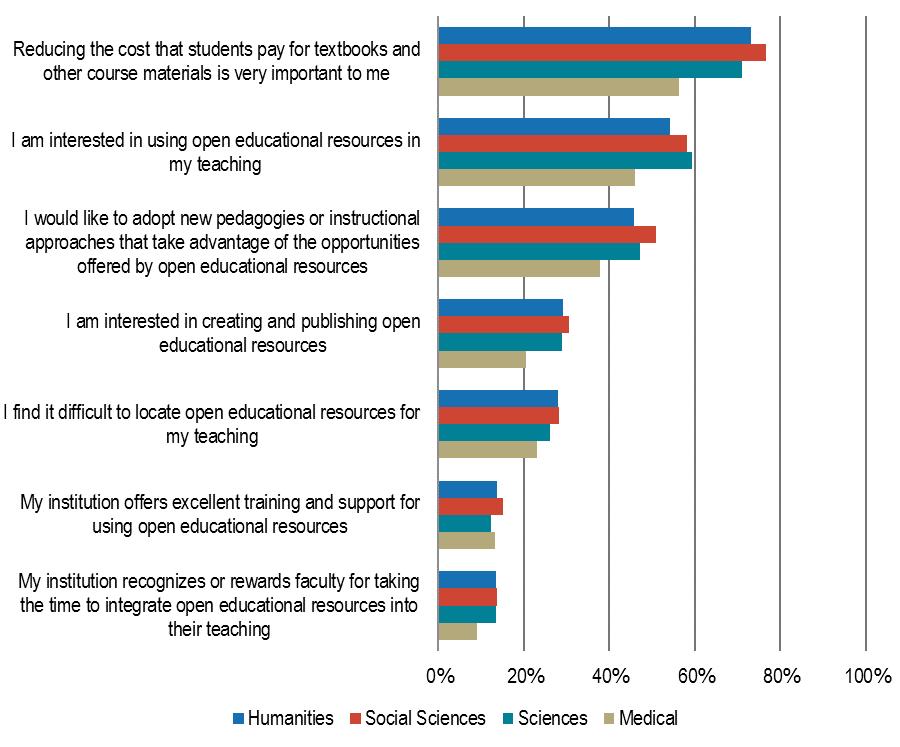
Table 10
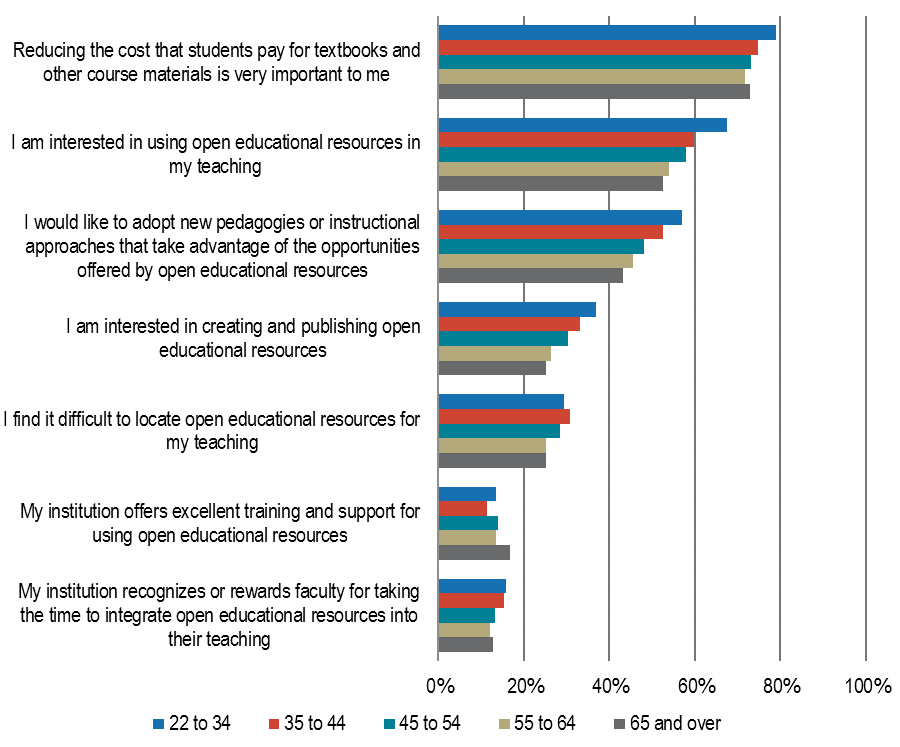
Table 11
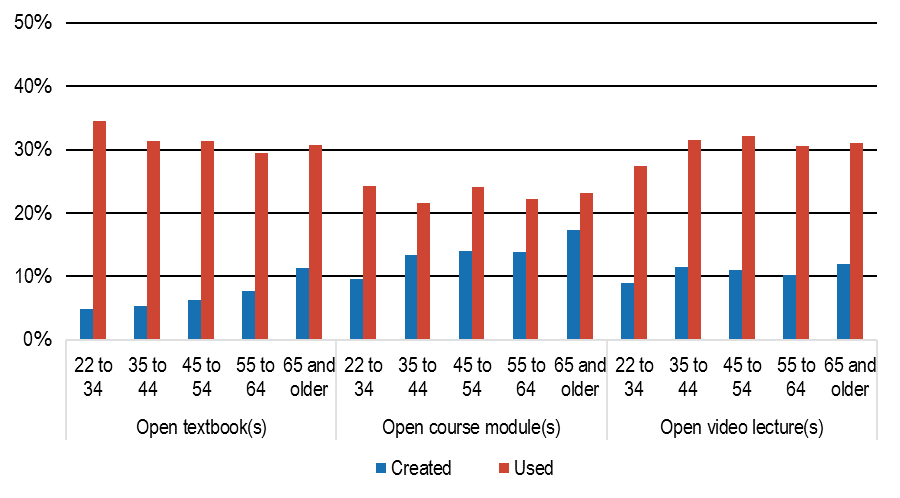
Learning Analytics Tools
Table 12
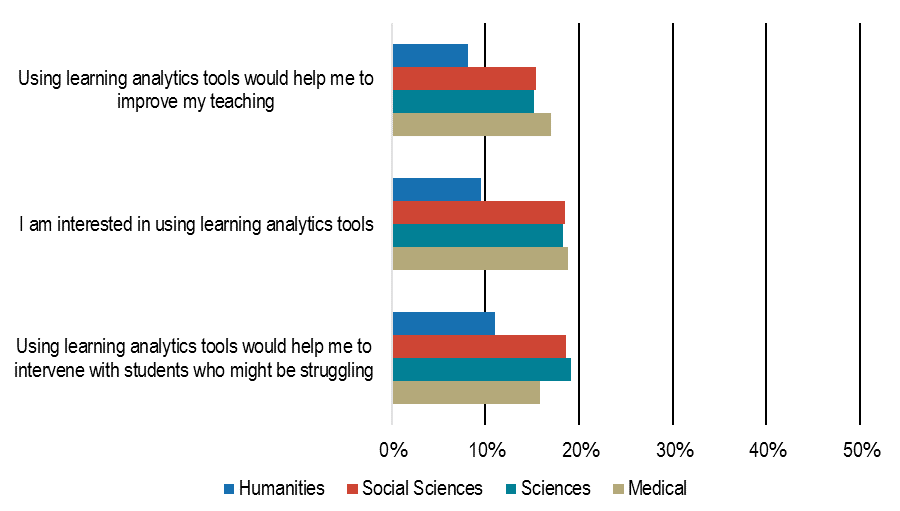
table 13
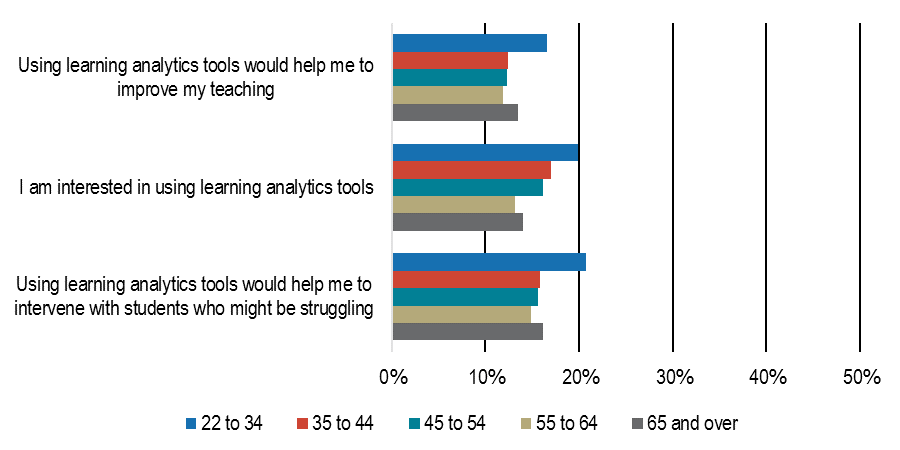
table 14
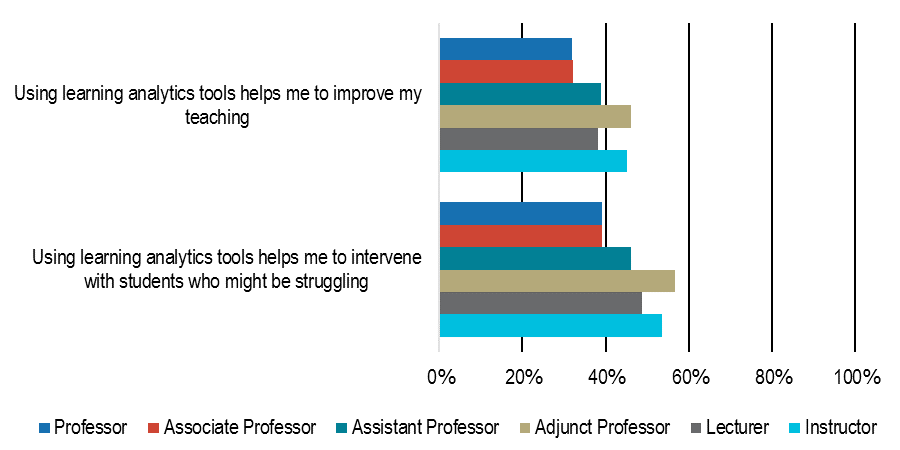
table 15
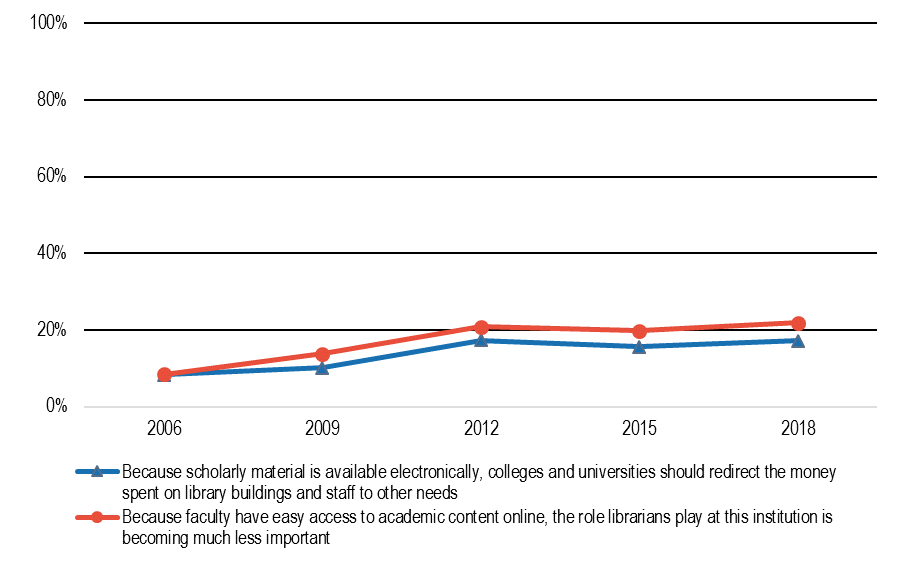
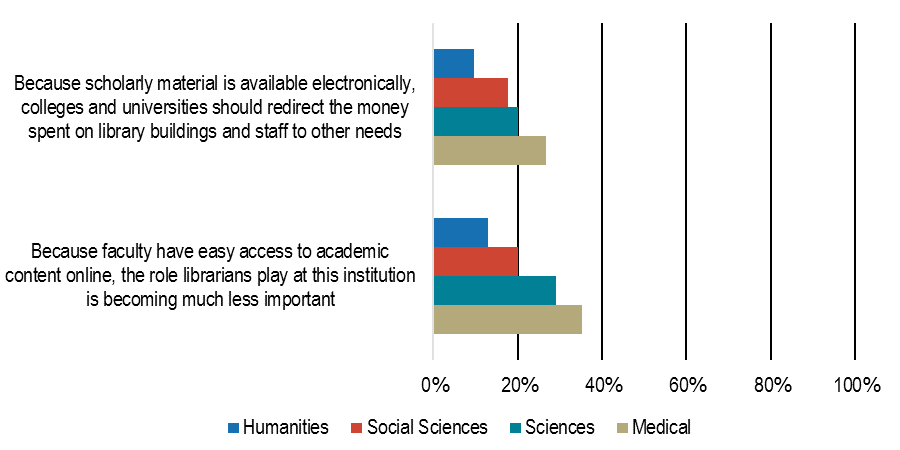
Under Employers’ Gaze, Gen Z Is Biting Its Tongue On Social Media
April 13, 20195:00 AM ET
HAFSA QURAISHI
https://www.npr.org/2019/04/13/702555175/under-employers-gaze-gen-z-is-biting-its-tongue-on-social-media
The oldest members of Generation Z are around 22 years old — now entering the workforce and adjusting their social media accordingly. They are holding back from posting political opinions and personal information in favor of posting about professional accomplishments.
only about 1 in 10 teenagers say they share personal, religious or political beliefs on social media, according to a recent survey from Pew Research Center.
70 percent of employers and recruiters say they check social media during the hiring process, according to a survey conducted by CareerBuilder
Generation Z, nicknamed “iGen,” is the post-millennial generation responsible for ‘killing’ Facebook and for the rise of TikTok.
Curricula like Common Sense Education’s digital citizenship program are working to educate the younger generation on how to use social media, something the older generations were never taught.
Some users are regularly cleaning up — “re-curating” — their online profiles. Cleanup apps, like TweetDelete,
Gen Zers also use social media in more ephemeral ways than older generations — Snapchat stories that disappear after 24 hours, or Instagram posts that they archive a couple of months later.
Gen Zers already use a multitude of strategies to make sure their online presence is visible only to who they want: They set their account to private, change their profile name or handle, even make completely separate “fake” accounts.
+++++++++++++++
more on social media in this IMS blog
https://blog.stcloudstate.edu/ims?s=social+media
and privacy
https://blog.stcloudstate.edu/ims?s=privacy
Does Empathy Have A Dark Side?
April 12, 201911:43 AM ET.JONATHAN LAMBERT.
https://www.npr.org/sections/health-shots/2019/04/12/712682406/does-empathy-have-a-dark-side
author Fritz Breithaupt. “Sometimes we commit atrocities not out of a failure of empathy but rather as a direct consequence of successful, even overly successful, empathy,” he writes in his forthcoming book The Dark Sides of Empathy.
Breithaupt, who directs the Experimental Humanities Lab at Indiana University, argues that empathy is a morally ambiguous capacity, one that can lead us astray if we don’t understand its many sides.
People assume that empathy is good because it is good for the recipient of empathy — I’m actually skeptical about this.
How is empathy good for the empathizer?
“vampiristic empathy.”
Vampiristic empathy is a form of empathy where people want to manipulate the people they empathize with so that they can, through them, experience the world in such a way that they really enjoy it.
An extreme case of this is helicopter parenting. Helicopter parents are constantly trying to steer their kids in the directions they think are the right directions. Of course they want the best for their children.
In a sense, extreme helicopter parents are robbing their kids of a selfhood so that they can basically project their own self into these kids.
empathy can actually make us more polarized instead of bringing us together.
Humans are very quick to take sides. And when you take one side, you take the perspective of that side. You can see the painful parts of that perspective and empathize with them, and that empathy can fuel seeing the other side as darker and darker or more dubious.
Are there other downsides to empathy?
[Empathizers] may overextend themselves. If you are a medical doctor who sees a lot of suffering and pain every day, it can very quickly become too much. Something like a third of medical doctors suffer from “empathy burnout” that is so severe that it affects their functioning as doctors and their personal life. They become the victim of feeling empathy.
My note: and some therapists can suffer of “hollow” empathy – an empathy not as a human feeling but as a tool to extend their ability/control in the room.
Also, “MInnesota Nice” can acquire a rather different meaning seen through the lens of this research
My core argument here is that in many cases of altruistic help or humanitarian aid, people actually don’t really empathize as much with the person in need. They identify more with the helper, the hero, the person who intervenes even if it’s an imaginary helper.
If you want recognition and if that doesn’t come, it can turn into resentment.
we can learn to use empathy in a somewhat controlled way. We can learn when to block it, when to not allow empathy to be manipulated and when to fully turn it on.
Yes, we are born with empathy, but it needs constant practice [to know] when to use it and when not to use it. So the dark sides are so important to know because they teach us that in some cases you shouldn’t empathize.
+++++++++++++++++
more on empathy in this IMS blog
https://blog.stcloudstate.edu/ims?s=empathy
